VIPsight - October 2012
COMPANIES
Hurdles for armaments merger getting bigger
 For European Aeronautic Defence and Space Company (EADS) and BAE Systems, it is becoming increasingly difficult to implement their proposed merger. By 10 October the Franco-German aerospace group must announce whether it will go with its British competitors or not. The different interests of the governments of Germany, France and Britain could derail the merger. A particular issue is the participation rights of the States. François Hollande now apparently wants to set up a blocking stake in the new company along with the German government. The British are against this, and whether Germany will follow the French President’s idea is still open. The project of the Airbus parent company and the UK defence group also meets concerns from the two major industrial EADS shareholders, Lagardère and Daimler. Lagardère announced on 1 October in Paris that the merger terms were not satisfactory at the moment. The company called on EADS CEO Thomas Enders to rework them and take the interests of French shareholders into account more in the project. Daimler criticized the decline in share value since the announcement of the merger plans.
For European Aeronautic Defence and Space Company (EADS) and BAE Systems, it is becoming increasingly difficult to implement their proposed merger. By 10 October the Franco-German aerospace group must announce whether it will go with its British competitors or not. The different interests of the governments of Germany, France and Britain could derail the merger. A particular issue is the participation rights of the States. François Hollande now apparently wants to set up a blocking stake in the new company along with the German government. The British are against this, and whether Germany will follow the French President’s idea is still open. The project of the Airbus parent company and the UK defence group also meets concerns from the two major industrial EADS shareholders, Lagardère and Daimler. Lagardère announced on 1 October in Paris that the merger terms were not satisfactory at the moment. The company called on EADS CEO Thomas Enders to rework them and take the interests of French shareholders into account more in the project. Daimler criticized the decline in share value since the announcement of the merger plans.
DAX entrants Continental and LANXESS replace MAN and METRO
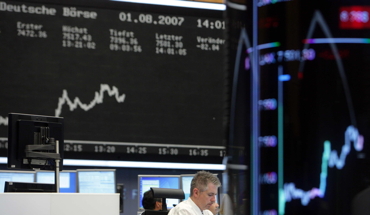 Continental and LANXESS have since 24 September replaced MAN and METRO in the DAX; for around 25 years these shares had been a fixed part of the major league on the exchange. It is the first change in the German first league since 2010 and only the third time in its roughly 25-year history that two companies go down at the same time other than through acquisition or merger. For the automotive supplier it is the second revival. For the retail group, most likely the well below average share price this year was fatal. At the vehicle manufacturer, the free float had dropped so much after the acquisitions by the Volkswagen Group that it was not enough to remain in the DAX. In the MDAX TAG Immobilien displaced the engine manufacturer Deutz, and in the TecDAX BB Biotech and LPKF Laser & Electronics succeeded Gigaset and Singulus. The basis for the decisions by the working group were the stock-exchange index rankings, in which the companies are sorted by trading volume and free-float-adjusted market capitalization.
Continental and LANXESS have since 24 September replaced MAN and METRO in the DAX; for around 25 years these shares had been a fixed part of the major league on the exchange. It is the first change in the German first league since 2010 and only the third time in its roughly 25-year history that two companies go down at the same time other than through acquisition or merger. For the automotive supplier it is the second revival. For the retail group, most likely the well below average share price this year was fatal. At the vehicle manufacturer, the free float had dropped so much after the acquisitions by the Volkswagen Group that it was not enough to remain in the DAX. In the MDAX TAG Immobilien displaced the engine manufacturer Deutz, and in the TecDAX BB Biotech and LPKF Laser & Electronics succeeded Gigaset and Singulus. The basis for the decisions by the working group were the stock-exchange index rankings, in which the companies are sorted by trading volume and free-float-adjusted market capitalization.
Buhlmann's Corner
“Winning in a changed environment”
Deutsche Bank between Kraft Foods/Mondelez and Glencore/XSTRATA
 Is this the changed environment in which the two-headed Deutsche Bank board now wants to win? Should the Bank be divided at the breaking point on the board, as Kraft Foods was (or earlier Bayer and Lanxess; the experience of Werner Wenning is prominently represented on the Supervisory Board, after all)? Or should it join forces with a financial house with an eye to stabilization, as is currently being practised on the commodity market?
Is this the changed environment in which the two-headed Deutsche Bank board now wants to win? Should the Bank be divided at the breaking point on the board, as Kraft Foods was (or earlier Bayer and Lanxess; the experience of Werner Wenning is prominently represented on the Supervisory Board, after all)? Or should it join forces with a financial house with an eye to stabilization, as is currently being practised on the commodity market?
The politician’s approach is obvious. With connected surprise-attack headlines on topics where envy, insecurity, lack of understanding and lack of responsibility for the future are combined, efforts are being made to attract attention. Of course, you can split the Deutsche Bank and cobble together 25 Raiffaisen banks out of it – but then Siemens will have to split its funds too, for none of these resulting Raiffeisens will be strong enough. ThyssenKrupp and BASF will then probably look for their financial companion in Paris, London or Beijing, as the only institution of any rank has gone down. Also, by the way, the only institution having cross-border importance that has not claimed state aid.
If it’s so easy to divide a complex institution, why then did Allianz finally fail? It cannot have been stupidity there. If we separate transmission and engine within the same holding company/ bodywork (as the European Erkki Liikanen proposed) will the car be faster and stronger? Or is all we can achieve that it no longer runs into the wall, because it’s stopped moving?
Was it not those very politicians who from WestLB to SaarLB to Bankia & Co serially and demonstrably failed? Even where they were sitting there with special rights and influence at all levels, it went clamorously wrong: IKB – State Bank shareholders, Supervisory Board appointment rights and State secretaries as well as regulators on the Supervisory Board. The result is now in Texas. At least in the second part of the global crisis of confidence (the so-called financial crisis), the same politicians bear the blame with their credit hunger as are today competing with proposals for splits. Some want to become chancellor, others have no bank in their Land; and the onlooking Michel Barnier will know why he kept silent.
The irresponsibility of politicians is topped only by the shareholders, whom everything seems to pass by, who do not turn up for the General Meeting even when something essential is pending – the Deutsche Bank attendance of one-third is embarrassing, for the shareholders not for the Bank. The shareholders who did appear set a clear signal for the new bank management by their 25% refusal of discharge. That should not be politically readjusted after one quarter. The bank needs its shareholders now!
In this critical situation, the Supervisory Board is once again facing a choice of direction. Is the multiple Supervisory Board member and Green politician as head of the ver.di union to take a seat directly, alongside Paul Achleitner as his deputy, on the Supervisory Board of the bank? The Deutsche Bank needs characters and role models right now – so the employees should also make an effort and not let the seat today occupied from within the bank by trade unionist Karin Ruck as part of participation leave the house! And if it does, then not to Frank Bsirske, time and again caught up in conflicts of interest. At his RWE client, he stands out because he collects and phones while he’s in the meeting. At Lufthansa, he has the dubious distinction of being the only board member to be without discharge. The AGM refused him it on 18 June 2003, after he had damaged the company before – which does not stop him holding on to office and taking free first class flights, while his members at Lufthansa are on strike (2008). The refusal of discharge for the unionist was worth three columns on the first page for the Financial Times – the person concerned was just pale and grinning.
The Deutsche Bank, the employees, and the reputation of the (last international) bank of the country whose name it bears, deserve a better Supervisory Board – partly, and especially, so as not to discredit the basically good model of German co-determination internationally. Employee participation, unlike functionary participation, is often helpful, and promotes the whole person, not just the political stars full of conflicts.
ACTIONS CORNER
 The Commerzbank, along with the Royal Bank of Scotland and South Africa's Standard Bank, has sued the Dubai Group. The heavily indebted investment firm owes its creditors ten billion U.S. dollars. Although a non-judicial way would be preferable, the Dubai Group had so far produced no viable proposal for an appropriate settlement, it was stated. After two years of fruitless talks on debt restructuring there were no alternatives, the banks said in a joint statement on 13 September.
The Commerzbank, along with the Royal Bank of Scotland and South Africa's Standard Bank, has sued the Dubai Group. The heavily indebted investment firm owes its creditors ten billion U.S. dollars. Although a non-judicial way would be preferable, the Dubai Group had so far produced no viable proposal for an appropriate settlement, it was stated. After two years of fruitless talks on debt restructuring there were no alternatives, the banks said in a joint statement on 13 September.
 On 28 November, a second case under the Capital Markets Model Case Act (KapMuG) against Deutsche Telekom starts before the Frankfurt Higher Regional Court (OLG), after the court again determined a lead plaintiff out of the flood of plaintiffs who accuse Telekom of errors in the prospectus for the so-called second IPO in 1999. The Frankfurt am Main Regional Court had brought several claims for damages against Telekom to the OLG for a decision under the KapMuG. The Regional Court’s order for reference concerns a three-digit number of investor complainants.
On 28 November, a second case under the Capital Markets Model Case Act (KapMuG) against Deutsche Telekom starts before the Frankfurt Higher Regional Court (OLG), after the court again determined a lead plaintiff out of the flood of plaintiffs who accuse Telekom of errors in the prospectus for the so-called second IPO in 1999. The Frankfurt am Main Regional Court had brought several claims for damages against Telekom to the OLG for a decision under the KapMuG. The Regional Court’s order for reference concerns a three-digit number of investor complainants.
Oracle has filed an appeal against the compensation payment of $306 million agreed in August, says SAP. Thus, the German software company faces an extension of the five-year data-theft dispute. At worst, the appeal process would last two years, SAP adds. It was disappointing that Oracle was dragging this litigation out further. Both sides had agreed on a reasonable settlement. SAP believes the case has lasted long enough. The case is now before an appeals court in San Francisco.
The Bundeskartellamt has imposed fines for crimes of collusion totalling €24.3 million against several suppliers of power transformers. The companies, including Siemens, ABB, Alstom Grid in Frankfurt and Starkstrom-Gerätebau in Regensburg, had from spring 1999 until March 2004 made restrictive agreements and divided the German market for power transformers among themselves. Tenders of numerous energy companies were involved, said the agency’s President Andreas Mundt. The proceedings were initiated in August 2008.
AGM Dates

With 350,000 hits so far in 2012, AGMagenda.com has once again sparked the interest of general meeting professionals and other interested parties. One of the contributing sponsors is financial services solution provider Broadridge Financial Solutions.
Thanks to the open architecture of Broadridge’s own ProxyEdge® electronic proxy management solution, institutions linked to the platform can subscribe to the services of a number of research and vote recommendation providers. Amongst others Egan Jones, Glass Lewis, IVOX, PIRC, ProxInvest and SHARE offer a cost-effective service via the Broadridge Integrated Recommendations solution.
This year Broadridge’s AGM is taking place on November 15th, 2012. Since 2009 it has been an all-virtual event, using Broadridge’s Virtual Shareholder Meeting platform, a service that enables corporations to conduct annual meetings with their shareholders electronically, via streaming audio or video.
For further information on ProxyEdge® Integrated Recommendations and Virtual Shareholder Meeting please contact Broadridge directly on +49-160-748 5676 or This email address is being protected from spambots. You need JavaScript enabled to view it..
People
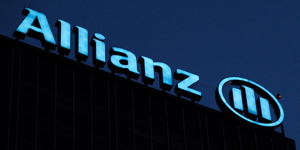 Stine Bosse was appointed to the Supervisory Board of Allianz by Munich District Court. The former head of Tryg, as planned, replaced Gerhard Cromme, Europe’s largest insurer announced in Munich on 20 August. Cromme had been a member for almost eleven years as a shareholder representative. Under the Danish woman, the second-largest Scandinavian insurance group had one of the best IPOs in Copenhagen.
Stine Bosse was appointed to the Supervisory Board of Allianz by Munich District Court. The former head of Tryg, as planned, replaced Gerhard Cromme, Europe’s largest insurer announced in Munich on 20 August. Cromme had been a member for almost eleven years as a shareholder representative. Under the Danish woman, the second-largest Scandinavian insurance group had one of the best IPOs in Copenhagen.
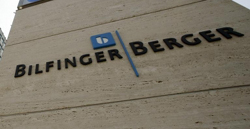 Due to differing views on the implementation of business policy, the paths of Bilfinger Berger and Klaus Raps are to separate at the end of the year. Jochen Keysberg has therefore been appointed to the Board of Bilfinger Berger, Mannheim, as from 1 November. He joined the service and construction company in 1997 and is currently CEO of Bilfinger Berger Ingenieurbau GmbH.
Due to differing views on the implementation of business policy, the paths of Bilfinger Berger and Klaus Raps are to separate at the end of the year. Jochen Keysberg has therefore been appointed to the Board of Bilfinger Berger, Mannheim, as from 1 November. He joined the service and construction company in 1997 and is currently CEO of Bilfinger Berger Ingenieurbau GmbH.
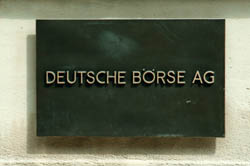 As the Deutsche Börse announced on 18 September, the committee will be reduced in the coming year from six to five members and the cash-market division merged with the futures-market division. As part of the reorganization, the Frankfurt market operator also stated that Frank Gerstenschläger will at his own request and “in friendly agreement with the company” let his board contract expire on 31 March 2013.
As the Deutsche Börse announced on 18 September, the committee will be reduced in the coming year from six to five members and the cash-market division merged with the futures-market division. As part of the reorganization, the Frankfurt market operator also stated that Frank Gerstenschläger will at his own request and “in friendly agreement with the company” let his board contract expire on 31 March 2013.
As he did more than nine years ago as Deutsche Lufthansa CEO, Wolfgang Mayrhuber will probably replace the retiring incumbent Jürgen Weber in a few months as Supervisory Board chairman. Its Nomination Committee recommended Mayrhuber as successor on 19 September. Weber described him as his preferred candidate. Another recommendation follows the same pattern: the Committee also encouraged Karl-Ludwig Kley as successor to the outgoing Klaus G. Schlede, also retired. Kley had followed Schlede in 1998 as Lufthansa CFO. He is currently CEO of Merck. Mayrhuber was Lufthansa CEO until the end of 2010 and currently chairs the Supervisory Board of Infineon.
Manfred Kroneder and Michael Bush are on the board of DOUGLAS HOLDING from 17 September. After several weeks of speculation in the book industry about Michael Busch leaving Thalia, the books chief has now been promoted. This emphasized that the group continues to support Thalia and is convinced of the restructuring programme presented to the Supervisory Board. The appointment of Kroneder should document externally the particular importance of the profitable perfumes side, said Supervisory Board chair Jörn Kreke. Anke Giesen left the company at the same time at her own personal wish. The previous Human Resources Director, on the board of the Hagen conglomerate since November 2009, is, as announced, moving to the Board of Fraport in Frankfurt.
 The European Aeronautic Defence and Space Company (EADS) has parted from Stefan Zoller with immediate effect. The longtime chief of the defence division was replaced by Bernhard Gerwert, who was previously responsible for the operations of the armaments subsidiary Cassidian. Zoller, who had led Cassidian since 2005, has left the aviation group. His contract actually still has until 2015 to run. Günter Butschek and John Leahy also move to the Group Board, completing the new 13-member executive committee immediately. Both Airbus executives are considered confidants of Enders, who had before his rise to company head in June headed the main EADS subsidiary, Airbus. In the future, five of the members will be French and five German, plus the Spaniard Domingo Urena-Raso and the Americans Leahy and Sean O’Keefe. Enders took the helm EADS in June, replacing Louis Gallois. Under his management the Board will determine the Group-wide strategies of the company.
The European Aeronautic Defence and Space Company (EADS) has parted from Stefan Zoller with immediate effect. The longtime chief of the defence division was replaced by Bernhard Gerwert, who was previously responsible for the operations of the armaments subsidiary Cassidian. Zoller, who had led Cassidian since 2005, has left the aviation group. His contract actually still has until 2015 to run. Günter Butschek and John Leahy also move to the Group Board, completing the new 13-member executive committee immediately. Both Airbus executives are considered confidants of Enders, who had before his rise to company head in June headed the main EADS subsidiary, Airbus. In the future, five of the members will be French and five German, plus the Spaniard Domingo Urena-Raso and the Americans Leahy and Sean O’Keefe. Enders took the helm EADS in June, replacing Louis Gallois. Under his management the Board will determine the Group-wide strategies of the company.
Peter Feldmann (SPD) was appointed to the Supervisory Board of Fraport by the competent registration court of Frankfurt am Main on 3 September. Frankfurt’s new mayor takes over the post of Jutta Ebeling (Greens), which the former mayor of the city resigned as from 31 August this year, the airport operator announced. Feldmann’s contract applies initially until the end of the 2013 AGM.
The Supervisory Board of Fresenius Medical Care has appointed Ron Kürbitz to the Board with effect from 1 January 2013. Thus, the company has found a manager for the vacant Board position of the CEO of Fresenius Medical Care North America. Kürbitz follows Rice Powell, who will at that time take over the executive chair of the supplier of products and services for individuals with chronic kidney failure.
On 1 February 2013 Marcus A. Ketter will be Chief Financial Officer at Klöckner & Co. The 44-year-old is, after several international management positions, currently CFO at Schuler. He takes over the duties of Accounting/Finance, Controlling and Taxation from Gisbert Rühl, to date additionally in charge of the Finance portfolio, as well as IT. No longer on the executive committee since the end of September, surprisingly, is COO Ulrich Becker. A replacement will follow as quickly as possible, it was said.
As Kontron announced on 2 September, the two Supervisory Board members Andreas Plikat and Stephen Burke were appointed to the Board with effect from 1 September. As a result, the Board increased from four to six members. As Chief Operating Officer Plikat is to manage the operations, among them quality assurance and IT. Burke, until 31 August Member of the Supervisory Board of the small computer manufacturer, has been appointed as Chief Strategy Officer for a period of six months.
 ProSiebenSat.1 has created a new management department and appointed the first woman to top management. Heidi Stopper, previously Executive Vice President of Human Resources, has been appointed to the board of the broadcasting group with effect from 1 October. Stopper had in the last two years, besides her own ProSiebenSat.1 Academy, installed important performance and talent management tools, says CEO Thomas Ebeling.
ProSiebenSat.1 has created a new management department and appointed the first woman to top management. Heidi Stopper, previously Executive Vice President of Human Resources, has been appointed to the board of the broadcasting group with effect from 1 October. Stopper had in the last two years, besides her own ProSiebenSat.1 Academy, installed important performance and talent management tools, says CEO Thomas Ebeling.
From 1 October, Martin Siebert has strengthened the management team at Rhön-Klinikum. He was since early 2010 head of the Median hospitals; previously he had worked 16 years for Asclepius. After the failed takeover by Fresenius Wolfgang Pföhler and Erik Hamann also had to leave the company. Both go at their own request, Pföhler at the turn of the year, while Hamann left the Board on 30 September.
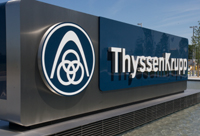 Ralph Labonte, whose contract actually runs until the end of September 2013, has for health reasons asked for an earlier end to his contract at ThyssenKrupp. The Personnel Director was a member of the Group Board for almost ten years. The North Rhine-Westphalia IG Metall and Germany’s biggest steel group announced on 10 September that Oliver Burkhard would stand as a candidate at the AGM on 21 November.
Ralph Labonte, whose contract actually runs until the end of September 2013, has for health reasons asked for an earlier end to his contract at ThyssenKrupp. The Personnel Director was a member of the Group Board for almost ten years. The North Rhine-Westphalia IG Metall and Germany’s biggest steel group announced on 10 September that Oliver Burkhard would stand as a candidate at the AGM on 21 November.
At Vossloh Jürgen Blume resigned from the Supervisory Board for health reasons on 31 August. On the filling of the post, the rail technology group declined to comment. In 2013 the Annual General Meeting will elect a completely new Supervisory Board. It is quite possible that major shareholder Thiele will occupy the vacant place. In the meantime, the district court should appoint a successor.
Campus
Almost one bank in five demanded money back from its employees in 2011
 Only 14 percent of international banking institutions and insurance companies worldwide have recovered already-paid remuneration payments from employees in 2011 (“clawback”), because the relevant employees and management had committed violations or financial restatements occurred. Another three percent have asked for the payments but not yet collected. Meanwhile, 62 percent of the world's banks have introduced so-called “clawback rules”. This emerges from a study by Mercer, surveying 63 companies in the finance and insurance industries worldwide. According to the survey 44 percent of the banks, especially in North America, had introduced the so-called clawback rules that allow the recovery of salary before the year 2011. Since then a reported additional 18 percent of banks and insurers have followed suit. The introduction of the recovery clauses was supported by regulatory authorities in Europe and North America after the 2008 financial crisis, as a means to control risk-taking by relevant staff. The most common triggers for reducing remuneration under the malus system are financial loss or loss of performance of the company (67 percent) or a division (54 percent), and individual violations of the conduct code (56 percent).
Only 14 percent of international banking institutions and insurance companies worldwide have recovered already-paid remuneration payments from employees in 2011 (“clawback”), because the relevant employees and management had committed violations or financial restatements occurred. Another three percent have asked for the payments but not yet collected. Meanwhile, 62 percent of the world's banks have introduced so-called “clawback rules”. This emerges from a study by Mercer, surveying 63 companies in the finance and insurance industries worldwide. According to the survey 44 percent of the banks, especially in North America, had introduced the so-called clawback rules that allow the recovery of salary before the year 2011. Since then a reported additional 18 percent of banks and insurers have followed suit. The introduction of the recovery clauses was supported by regulatory authorities in Europe and North America after the 2008 financial crisis, as a means to control risk-taking by relevant staff. The most common triggers for reducing remuneration under the malus system are financial loss or loss of performance of the company (67 percent) or a division (54 percent), and individual violations of the conduct code (56 percent).
Capital News
 Drillisch intends to purchase up to 3,792,118 of its own shares on the stock exchange. Already between November 2011 and March the mobile phone service provider bought back 2.87 percent of its capital stock, at a total cost of €9.71 million. Together with the 1,526,783 shares already held, this amounts to ten percent of the current share capital. A commercial bank has been commissioned with the implementation of the buyback, approved by the Management and Supervisory Boards on 13 September. The authorization to repurchase expires on 27 May 2015.
Drillisch intends to purchase up to 3,792,118 of its own shares on the stock exchange. Already between November 2011 and March the mobile phone service provider bought back 2.87 percent of its capital stock, at a total cost of €9.71 million. Together with the 1,526,783 shares already held, this amounts to ten percent of the current share capital. A commercial bank has been commissioned with the implementation of the buyback, approved by the Management and Supervisory Boards on 13 September. The authorization to repurchase expires on 27 May 2015.
 Siemens implements the announced cancellation of the shares bought back by the banks. The company has since the beginning of August spent around 1.1 billion euros for the repurchase of 14.6 million shares. By 30 December would be made of the buyback for 3.3 billion euros. The capital will then be reduced by the withdrawal of 33.2 million to 881 million units. The Group assumes long-term debt and bonds are out of around 2.7 billion euros. Siemens CFO Joe Kaeser will replace such an expensive equity with historically low-cost borrowing.
Siemens implements the announced cancellation of the shares bought back by the banks. The company has since the beginning of August spent around 1.1 billion euros for the repurchase of 14.6 million shares. By 30 December would be made of the buyback for 3.3 billion euros. The capital will then be reduced by the withdrawal of 33.2 million to 881 million units. The Group assumes long-term debt and bonds are out of around 2.7 billion euros. Siemens CFO Joe Kaeser will replace such an expensive equity with historically low-cost borrowing.
Director's Dealings
| Company | Person | Function | Buy / Sell | Total value in Euro | Number of shares | Datum |
| Deutsche Börse | Gerhard Roggemann | SB | B | 43.775 | 1.000 | 28.09.2012 |
| Dialog Semiconductor | Andrew Austin | MB | S | 34.318 | 2.000 | 10.09.2012 |
| Dialog Semiconductor | Gwyneth Austin | S | 34.318 | 2.000 | 10.09.2012 | |
| Dialog Semiconductor | Jalal Bagherli | MB | S | 3.304.005 | 195.968 | 06.09.- 07.09.2012 |
| Dialog Semiconductor | Pauline Bagherli | S | 33.400 | 2.000 | 06.09.2012 | |
| Dialog Semiconductor | Gary Duncan | MB | S | 121.727 | 7.273 | 05.09.- 06.09.2012 |
| Dialog Semiconductor | Martin Powell | MB | Exercising an Option | 121.775 | 13.080 | 06.09.2012 |
| Dialog Semiconductor | Martin Powell | MB | S | 67.032 | 4.038 | 06.09.2012 |
| Dialog Semiconductor | Jean-Michel Richard | MB | S | 1.378.924 | 82.071 | 06.09.- 10.09.2012 |
| Dialog Semiconductor | Mark Tyndall | MB | Exercising an Option | 149.854 | 8.969 | 06.09.2012 |
| Drillisch | Marc Brucherseifer | SB-Head | S | 880.000 | 100.000 | 10.09.2012 |
| E.ON | Dr. Bernhard Reutersberg | MB | B | 9.510 | 500 | 11.09.2012 |
| Fresenius | Dr. Ulf M. Schneider | MB-Head | Exercising an Option | 2.653.639 | 49.240 | 13.09.2012 |
| Fresenius | Dr. Gerd Krick | SB-Head | Exercising an Option | 735.845 | 10.000 | 11.09.2012 |
| GERRY WEBER | N & A Hardieck GmbH & Co. KG | S | 12.459.735 | 378.800 | 14.09.- 25.09.2012 | |
| GERRY WEBER | R + U Weber GmbH & Co. KG | B | 446.420 | 13.000 | 17.09.2012 | |
| GSW Immobilien | Dr. Jochen Scharpe | SB | S | 50.105 | 1.700 | 07.09.- 20.09.2012 |
| Hannover Rück | Irene Arrago | B | 36.000 | 750 | 28.08.2012 | |
| Henkel | Christoph Henkel | B | 15.915.674 | 285.197 | 11.09.2012 | |
| JENOPTIK | Brigitte Ederer | SB | B | 19.700 | 3.940 | 09.07.2012 |
| LANXESS | Rolf Stomberg | SB-Head | B | 66.170 | 1.000 | 20.09.2012 |
| Linde | Josef Schregle | SB | B | 4.658 | 35 | 20.09.2012 |
| RATIONAL | Gabriella Meister | S | 2.437.600 | 12.468 | 07.09.- 17.09.2012 | |
| SAP | Sikka Vishal | MB | B | 138.797 USD | 2.000 | 11.09.2012 |
| SGL CARBON | Jürgen Otto Walter Muth | MB | S | 204.416 | 6.500 | 13.09.2012 |
| Wirecard | MB Beteiligungsgesellschaft | S | 23.911.586 | 1.414.050 | 31.08.- 03.09.2012 |
VIPsight Shareholders
in September
VIPsight Shareholder ID <click here>















